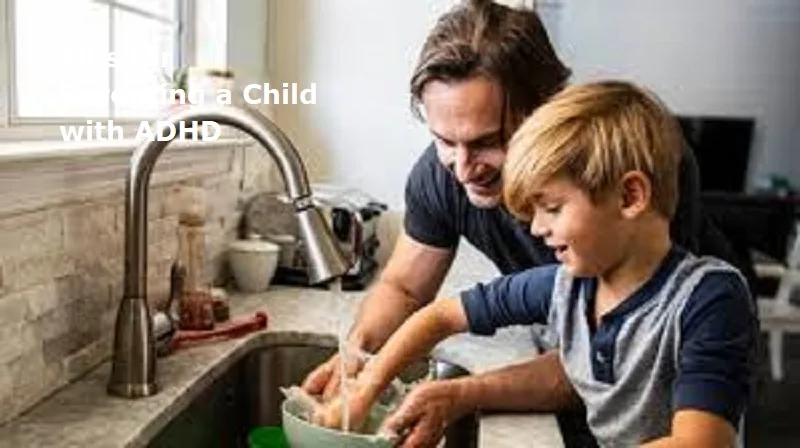
Attention-Deficit/Hyperactivity Disorder (ADHD) is a neurodevelopment disorder characterised by inattention, hyperactivity, and impulsivity.
Creating a supportive learning environment
One of the most effective ways to help children with ADHD is to create a supportive learning environment that caters to their specific needs. Children with ADHD often struggle with traditional classroom settings or study areas that are full of distractions. By providing a quiet, organised, and consistent space for learning, you can help your child focus better and retain information more effectively.
1. Establish clear routines and structure
Children with ADHD thrive in structured environments where there are clear expectations and predictable routines. Creating a daily schedule can help reduce anxiety and improve focus. By organising activities in a specific sequence, you minimise the confusion or overwhelm your child may feel.
Break down tasks into smaller steps, provide clear instructions, and use visual aids like charts or calendars to help them understand what’s coming next.
A consistent routine helps children with ADHD know what to expect, improving their ability to concentrate on specific tasks and reducing impulsive behaviours.
2. Break tasks into manageable chunks
ADHD makes it difficult for children to focus on large tasks, leading to frustration or feelings of failure. To mitigate this, break tasks into smaller, more manageable parts. This strategy helps children feel a sense of accomplishment as they complete each step, boosting their self-esteem and motivation.
Reward your child with praise or small incentives for completing each step of a task, creating positive reinforcement.
Breaking tasks into bite-sized pieces also makes overwhelming chores, like homework or tidying up, more achievable for children with ADHD.
3. Practice positive reinforcement
Positive reinforcement is key to helping children with ADHD develop appropriate behaviours. Rather than focusing on mistakes or missteps, offer praise and rewards when your child completes tasks or follows instructions well.
Use a reward system, such as stickers, tokens, or privileges, to acknowledge good behaviour. Consistent praise helps reinforce the behaviours you want to see.
Positive reinforcement encourages children with ADHD to stay focused and improves their confidence by shifting the attention away from mistakes.
4. Set clear boundaries and consequences
Setting clear boundaries and consequences helps children with ADHD understand acceptable behaviours and the consequences of crossing those boundaries. Be sure to explain rules clearly and enforce them consistently, so your child knows what is expected of them.
Ensure consequences are fair and immediate, so the child links their behaviour directly to the outcome. Avoid harsh punishment and focus on teaching rather than disciplining.
Having clear boundaries helps your child feel secure and promotes accountability, making it easier for them to learn from their actions.
5. Encourage physical activity
Children with ADHD often have excess energy, and regular physical activity can be an effective way to channel that energy in positive ways. Exercise boosts mood, improves focus, and helps children expend energy constructively, making it easier for them to concentrate during school or homework time.
Encourage activities like running, swimming, or even yoga, which can help reduce hyperactivity and improve concentration.
Regular exercise also has long-term benefits for emotional regulation and overall well-being, both of which are crucial for managing ADHD symptoms.
Also Read: Easy Ways to Repair a Broken Relationship
6. Teach social skills and empathy
Children with ADHD may struggle with social interactions, making it difficult to form friendships or navigate social situations. Teaching social skills, such as listening, sharing, and taking turns, can significantly improve their ability to relate to others.
Role-playing social scenarios or enrolling your child in a social skills group can provide opportunities to practice.
Building empathy is crucial as it helps your child understand others’ perspectives, improving peer relationships and emotional regulation.
7. Use time management tools
Time management is a challenge for children with ADHD, but visual timers, schedules, and alarms can help them stay on track. These tools create a tangible sense of time, allowing children to better understand how long tasks should take and when it’s time to transition to the next activity.
Use a timer for homework sessions or to limit screen time, making the duration of activities clear to your child.
8. Practice patience and empathy
Finally, patience is key. Children with ADHD face many challenges, from focusing on schoolwork to managing their emotions. Parents need to be empathetic and understanding, offering support rather than frustration when difficulties arise.
Take time for self-care to manage your stress, and remember that ADHD is a condition, not a behavioural choice. Support groups or counselling for parents can be helpful in managing expectations.
Being patient and empathetic builds a trusting relationship with your child, making it easier to work together on managing their ADHD symptoms.

Post Your Comments